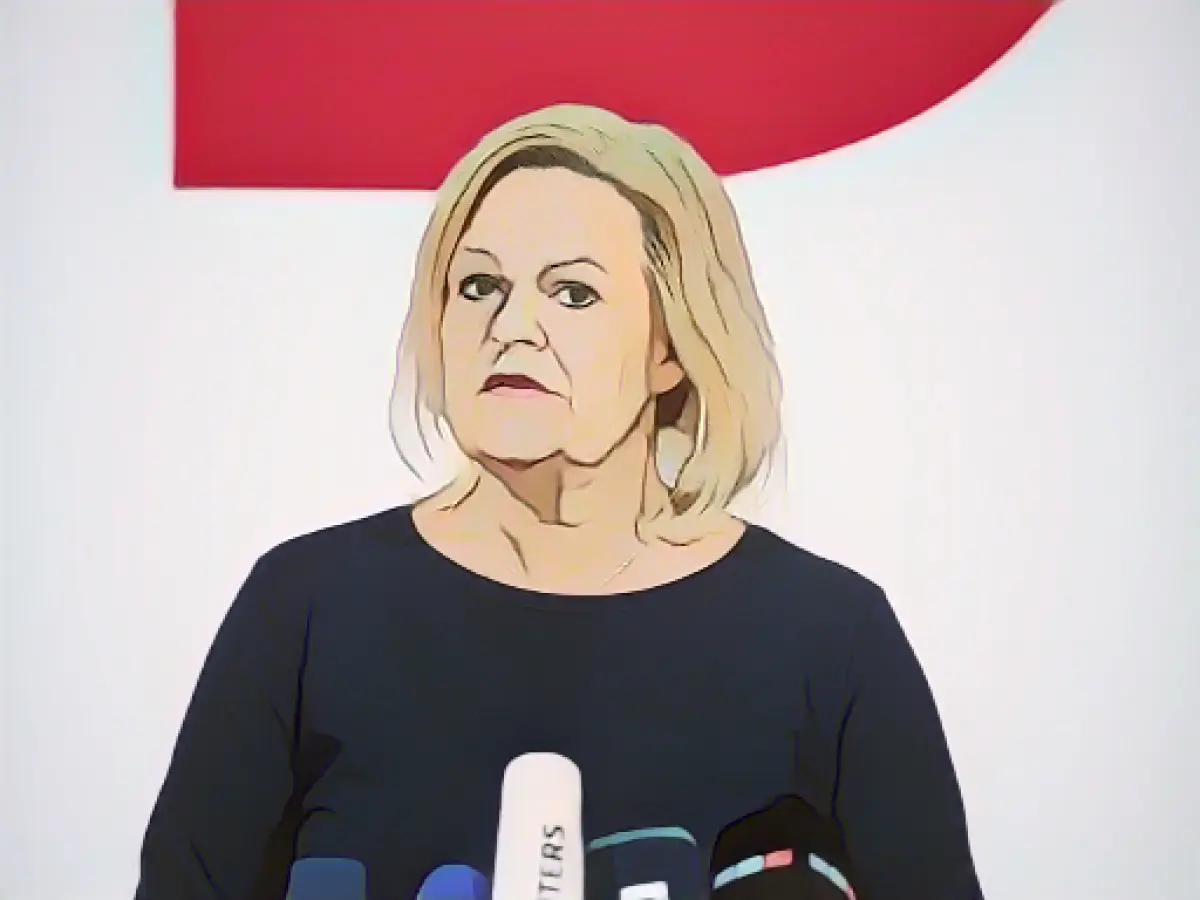Faeser orders border controls for another 20 days
The stationary controls at the borders with Poland, the Czech Republic and Switzerland will be extended by a further 20 days on Wednesday. Federal Minister of the Interior Nancy Faeser (SPD) informed the EU Commission of this on Tuesday. According to her ministry, the federal police have caught around 90 people smugglers at these borders since October 16.
"Our bundle of stationary and mobile border police measures is important to curb irregular migration to Germany," said Faeser. Close contact is still being maintained with neighboring countries and the federal states concerned to ensure that all measures on both sides of the border work together as effectively as possible. Faeser emphasized: "At the same time, we continue to attach particular importance to ensuring that the controls have as little impact as possible on the everyday lives of commuters, on trade and on travel."
The Federal Minister of the Interior initially announced fixed border controls at these sections for ten days on October 16 and then extended them once by 20 days. She justified this step with the fight against irregular immigration and people smuggling. According to the Federal Ministry of the Interior, around 6900 unauthorized entries have been detected by the federal police at these three land borders alone since the start of the controls and "around 2800 measures have been taken to prevent unauthorized entries and end unauthorized stays".
Faeser said that she wanted to return to internal borders as quickly as possible, where no controls were necessary. The reform of the Common European Asylum System with comprehensive protection of the EU's external borders was "the key step" towards this. The Federal Government is working intensively to finalize the EU legislation on this.
Temporary stationary controls have been in place at the land border between Germany and Austria since the fall of 2015 and have been repeatedly extended since then.
The extension of border controls for another 20 days by Faeser is also aimed at addressing the issue of refugees seeking entry into Germany, as many of the apprehended smugglers are believed to be involved in facilitating illegal migration. The EU Commission has been informed about this extension, highlighting the cooperation between Germany and other EU countries in addressing these challenges.
Source: www.dpa.com








